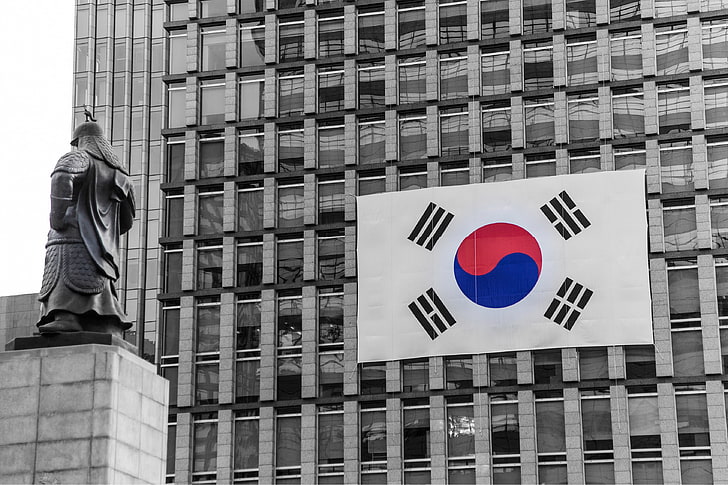In July 2023 in Seoul, South Korea and the United States established the bilateral Nuclear Consultative Group (NCG) as a combined deterrence effort against the rising threat of North Korea’s dangerous war technologies. On July 18th, the same day as the establishment of NCG, the Solidarity for Peace and Reunification of Korea protested the inaugural session outside of the presidential office in Seoul. The Solidarity for Peace and Reunification of Korea was organized in 1994 for the “national self-determination, peace and disarmament, and the reunification of the two East Asian Nations,” as stated by the Cultures of Resistance Network. The Nuclear Consultative Group’s meeting has sparked indignation from the Solidarity for Peace and Reunification of Korea who oppose the use of nuclear weapons in the Korean Peninsula.
In a statement issued by the White House on Tuesday, “This inaugural NCG meeting afforded the United States an opportunity to reaffirm and strengthen the U.S. commitment to provide extended deterrence to the ROK backed by the full range of U.S. capabilities, including nuclear.”
The Solidarity for Peace and Reunification of Korea focuses much of its work on “abolishing unjust military partnerships between South Korea and the United States and on peacefully resolving the North Korean nuclear issue.” Amidst the conflict between North and South Korea, a question arises: is reunification possible through peaceful means, or will it require military deterrence and intervention in order to avoid nuclear warfare? Furthermore, is it reasonable to deter North Korean nuclear weapons with American nuclear weapons? An essential condition for peace between North and South Korea is the dissolution of the U.S. and South Korea military alliance, which seems unlikely after the inaugural meeting for NCG. While the Korean Peninsula experiences heightened turmoil, the decision to fight violence with more violence seems to be an unlikely way for a peaceful resolution.
Tensions established between the United States and North Korea during the Cold War still hold prominence in the current conflict in the Korean Peninsula. In 1953, the Korean War concluded with the signing of an armistice, resulting in the division of the region along the 38th parallel. The Soviet Union occupied the North, while the United States occupied the South. North Korea has since maintained nuclear capabilities as a deterrent from the United States. “Ever since the Korean War, they always assumed that Washington would attack them… the only way for them to survive and not get attacked would be to develop the most powerful weapon on Earth, which would be the nuclear bomb,” said Duyeon Kim, a visiting senior fellow at the Seoul-based Korean Peninsula Future Forum. There have been significant efforts made by the United States to denuclearize North Korea including President Barack Obama’s plan to tighten sanctions in 2009 and Donald Trump’s anticipated Singapore Summit in 2018, though they have all proved unsuccessful due to animosity with North Korean leaders.
The threat of sanctions seems to be extremely intimidating to North Korea, especially given their chronic economic problems. Due to the nominally communist rule in North Korea, reliable information pertaining to their economy is lacking, making it challenging for the United States to fully comprehend the potential impact of sanctions on the North Korean economy. Given this known vulnerability, there are many routes that the United States can take to denuclearize the country peacefully, especially in examining past sanctioning efforts made by U.S. leaders. The Nuclear Consultative Group’s plan to deter North Korea’s nuclear weapons with the threat of their own weapons seems like an impending catastrophe. The resolution of this decades-long conflict might lie in multilateral talks on sanctions involving the United States and its allies.
- Establishment Of Nuclear Consultative Group Between U.S. And South Korea Sparks Indignation - September 21, 2023
- Violence In West Bank Persists After Israeli Troops Kill Alleged Palestinian Gunman - September 21, 2023
- Russian intelligence averts assassination attempt on the head of Crimea, allegedly organized by Ukrainian intelligence - August 30, 2023


